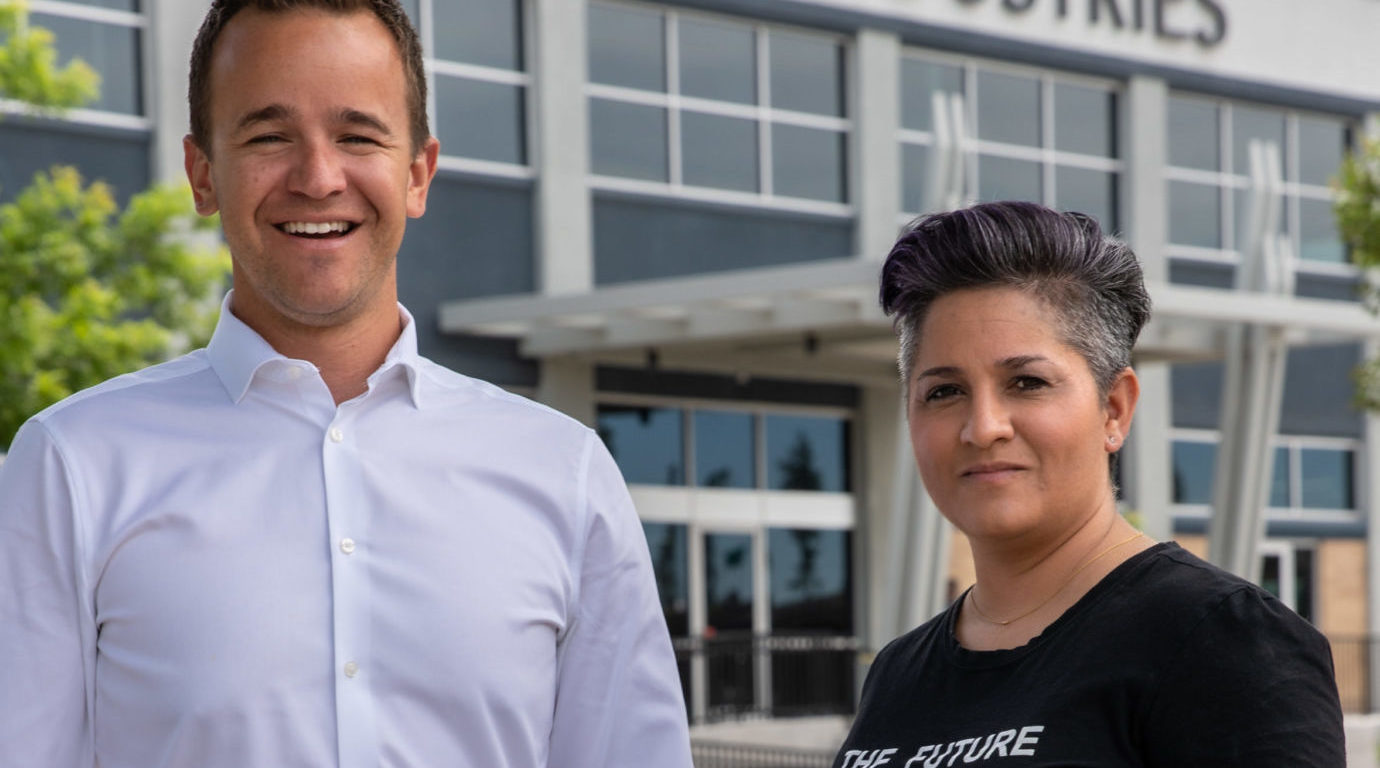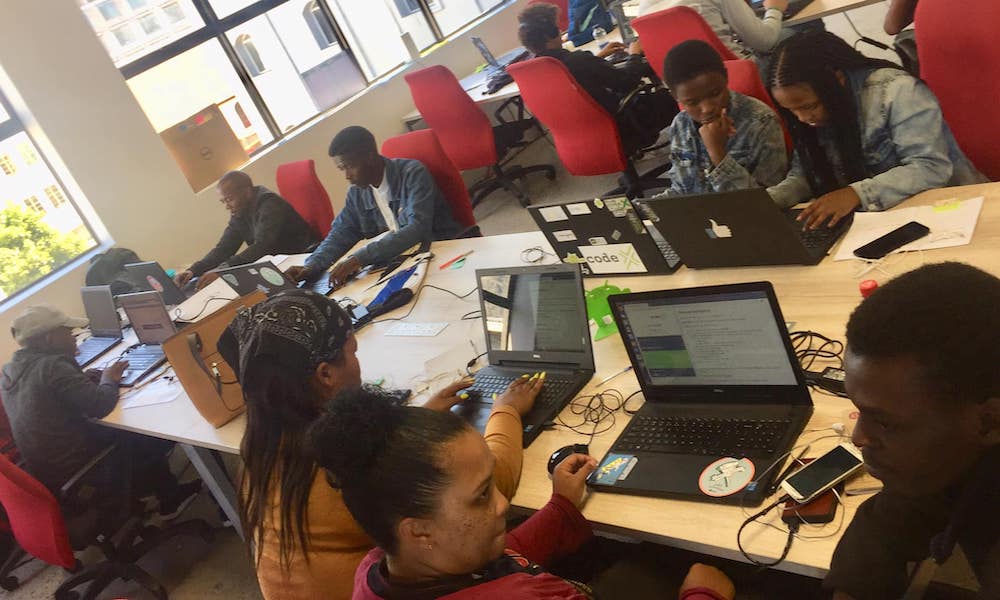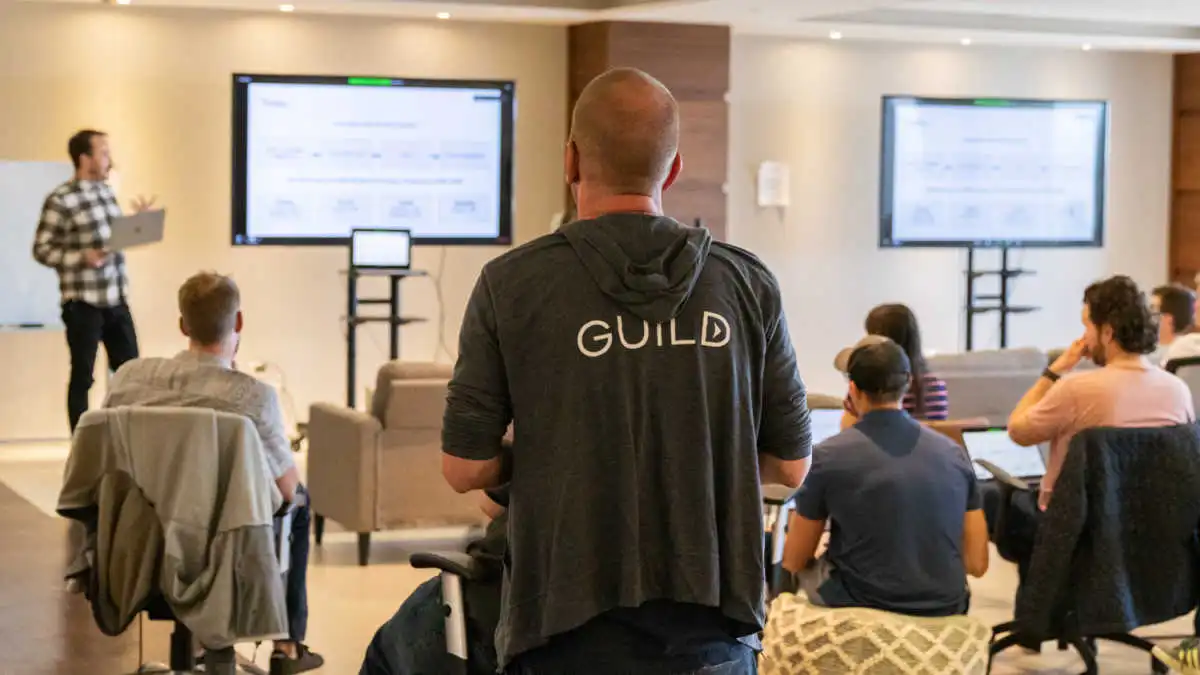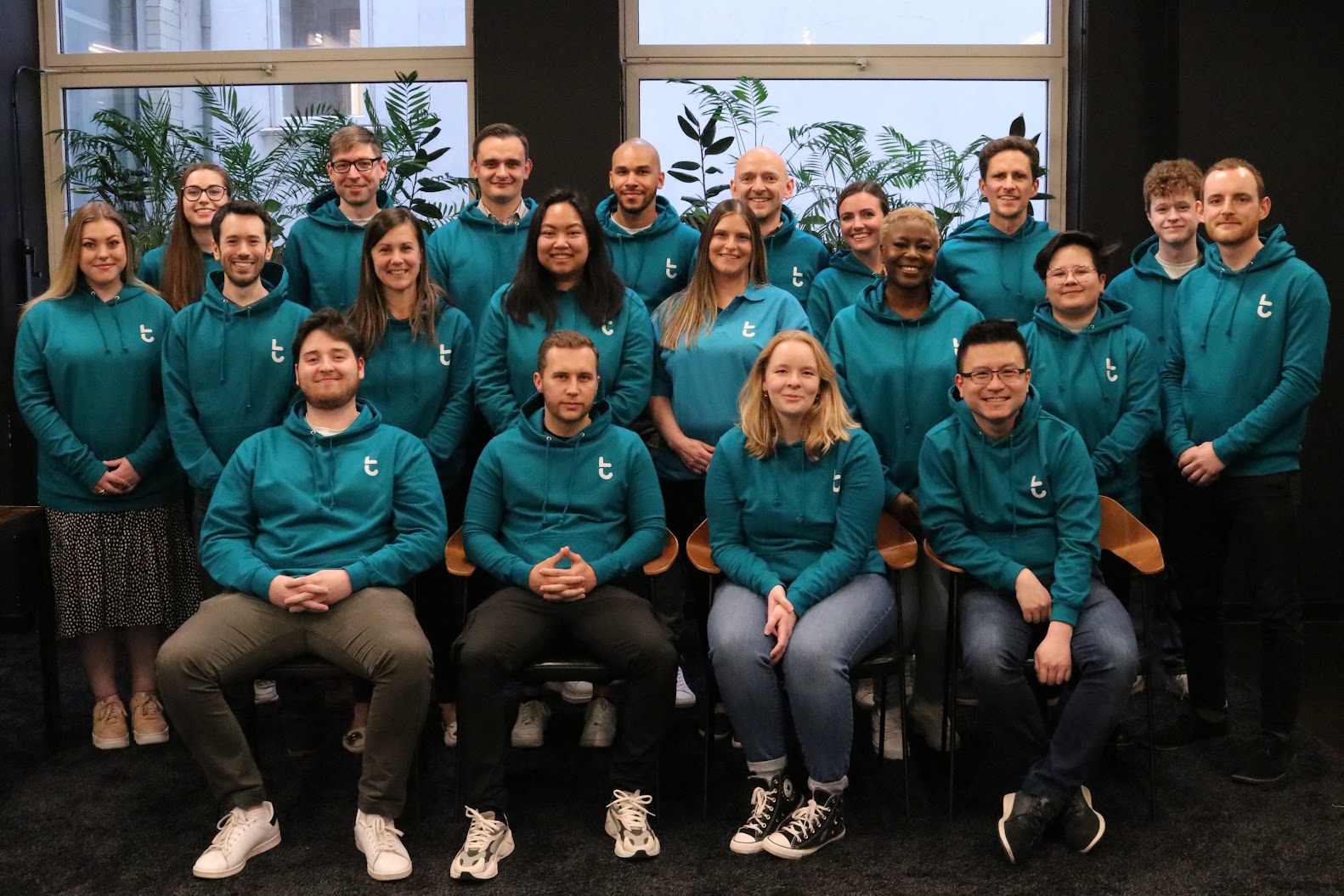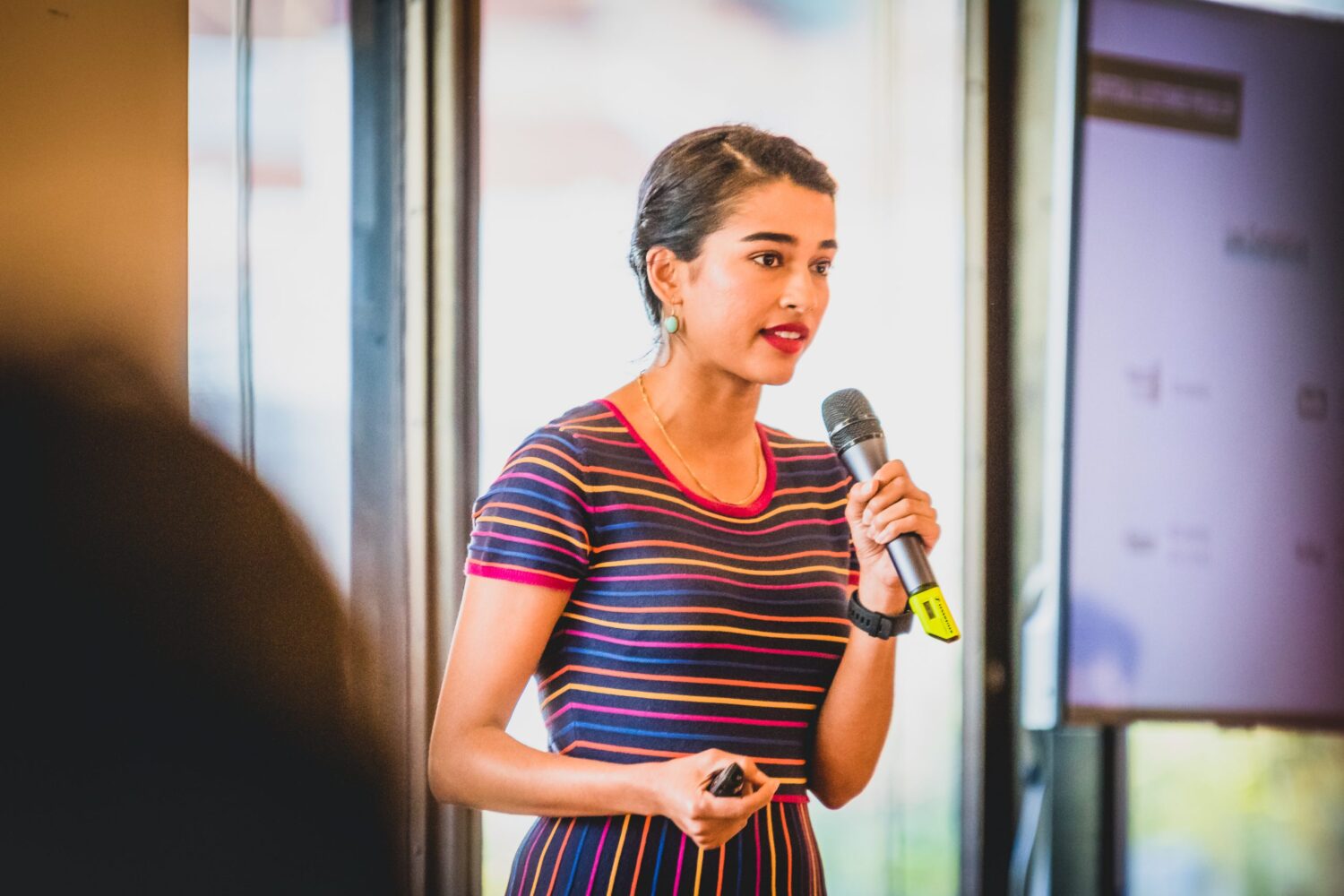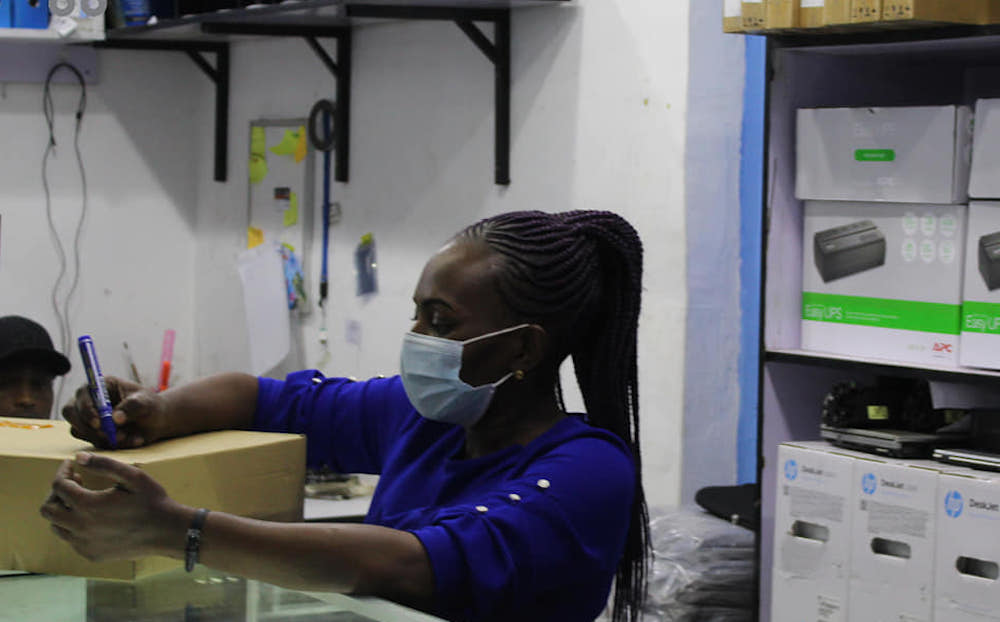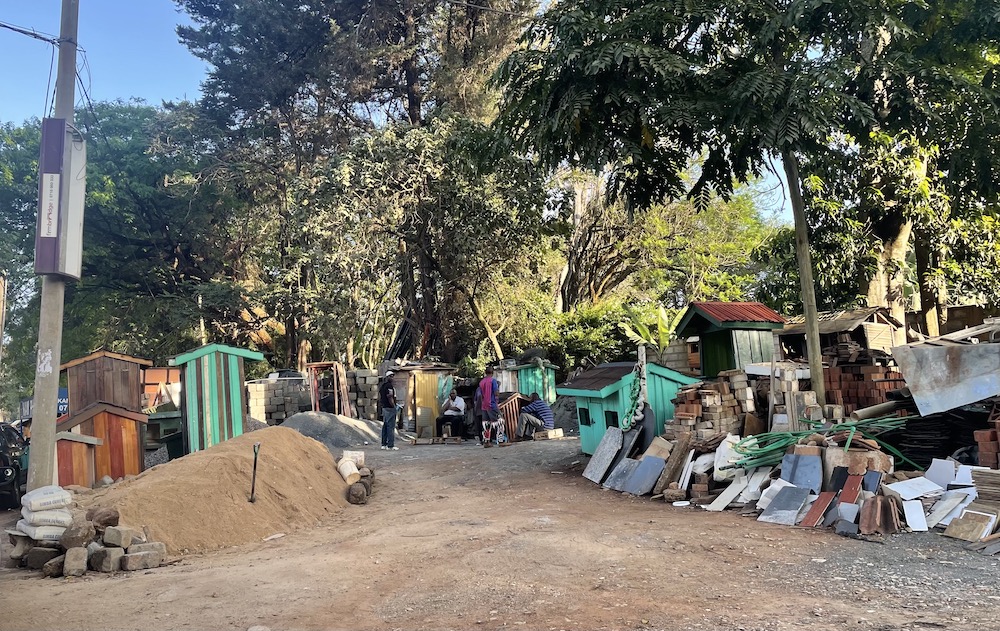ImpactAlpha, February 24 — Before the growth of Bitwise Industries, few would have mistaken Fresno, California, for a tech hub, even though the gritty San Joaquin Valley farm city is only 150 miles from pricey Silicon Valley.
Bitwise has challenged those assumptions, training more than 5,000 locals for technology careers since 2013 and rehabilitating more than 450,000 square feet in faded downtown buildings in Fresno and the nearby farm cities of Bakersfield and Merced. The Hive, a former records warehouse, is a colorful 50,000-square-foot building with two dozen startups and an anchor of downtown Fresno.
With a new round of $50 million in financing, Bitwise is taking its integrated model to Toledo, Ohio and other cities that have been largely left out of tech-related investment and job creation.
“Technology is one of the fastest growing industries in the United States and positions in the field are high-wage, high-growth jobs,” said Bitwise co-founder Jake Soberal. “The Bitwise model empowers communities of concentrated poverty to access quality jobs in the fastest growing industry in the global economy.”
Kapor Capital led the Series B round for Bitwise. It also co-led its $27 million Series A investment round in June 2019.
“Jake and Irma cracked the code on how you do economic development in underdog cities, cities that are not part of the tech ecosystem and have highly disparate levels of income and wealth,” Kapor Capital’s Mitch Kapor told ImpactAlpha. “There’s a huge alignment between Kapor Capital’s investment thesis, investing in companies that close gaps of access for low-income communities and/or communities color, and what Bitwise does.”
Digital new deal
Bitwise has three missions: to help close the wealth gap, end institutional discrimination and create access to high-wage, high-growth jobs in the tech industry for low-income minorities in underrepresented communities.
Bitwise’s other co-founder, Irma Olguin Jr., grew up in Fresno, graduated from the University of Toledo, found tech success as an engineer and entrepreneur and returned to Fresno to expand opportunities for others (see, “Agent of Impact”). The University of Toledo is a partner in Bitwise’s expansion, as is Toledo-based ProMedia, an investor in Bitwise’s latest financing.
Olguin said Bitwise’s buildings offer a community and serve as a physical representation of the tech industry for students in their communities.
“In these underdog cities, without that physical sense of community, without that physical sense of where the technology industry sits in your hometown, you will experience and be a part of the brain drain away from underdog cities and gravitate towards the coasts,” Olguin told ImpactAlpha. “If that person can’t find the physical representation of the technology industry, they will quite literally go somewhere else where they think they can find it.”
Bitwise’s revenues come from workforce training, technology consulting, and real estate. The company renovates blighted buildings and leases space to mission-aligned companies (the Fresno Bee was a Bitwise tenant until pandemic-related shutdowns forced the newspaper to downsize its office space). Some of the tenant companies may hire tech talent trained in Bitwise’s apprenticeship program. Bitwise’s own technology consulting creates software solutions for private, non-profit, and governmental organizations.
The company’s Geekwise Academy offers classes on coding, problem solving and critical thinking. Introductory courses are free for those who can’t afford it, but others pay up to $250 per course to attend. The workforce training is also subsidized by local partners.
“If we want to reach communities of systemic poverty and connect them to opportunities in tech, we simply have to pay people to learn,” Sobreral says. “We have to get to the point where they are not worrying about how they’re going to pay for groceries, or how they’re going to put gas in the tank, so they can come to class.”
Bitwise students earn up to $20,000 per year in the apprenticeship program, and earn $60,000 per year on average when they graduate the program and get hired. Women and people of color make up more than half of the students in the Geekwise program, which also serves veterans, undocumented immigrants and formerly-incarcerated people.
Closing wealth gaps
Investors in the company’s new investment round are convinced the Bitwise model can truly help build a more inclusive tech industry, especially at a time in which COVID has disproportionately impacted low-income communities, particularly communities of color, across the country.
Before the pandemic, the tech industry was adding nearly 10,000 jobs per month in the U.S., but too few of them go to women, Black, Latinx and other minorities in low-income, underserved communities. JPMorgan Chase invested in Bitwise as part of its expanded commitment to close the racial wealth gap (see, “JPMorgan Chase commits billions to build Black and Latinx wealth”)
“When we think about the future of work and how we prepare workers for where the economy is heading, so much of what Bitwise is doing aligns really well with that in terms of upskilling, in terms of identifying overlooked pockets of talent, giving them skills that they need for technology careers, all of that is about preparing people for a rapidly changing workforce” JP Morgan’s Shuman Chakrabarty told ImpactAlpha.
Other investors include Motley Fool Ventures, Candide Group, GingerBread Capital, Hunt Capital Investments, Impact Assets, Libra Foundation, Plum Alley and Western Technology Investment.
Oakland, Calif.-based Kapor Capital has been on a dealmaking tear of late, participating in recent announcements from Brooklyn’s BlocPower, a climate tech company retrofitting city buildings in underserved communities across the country; female-led Promise, which created a digital payment platform to help people pay essential bills and dues to the government; and San Francisco-based Elation Health, a company whose vision is to shift the U.S. healthcare system from transactional, fee-based care to patient-centered value-based care.
Bitwise will use the new financing to expand its Digital New Deal framework, created in partnership with the state of California to leverage government’s huge role as a technology customer to expand the apprenticeship model.
“We can attach it to enormous scale if the government would think differently about how it buys its technology,” says Soberal. “Instead of buying from a tech consulting firm, you can buy from Bitwise. You’d get the technology and in the process we’ll raise up a next-generation, representative tech workforce of folks who are coming from low-earning roles.”

